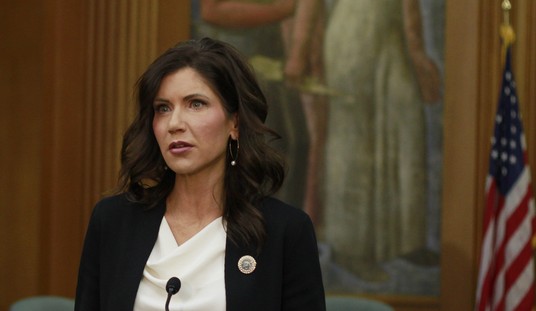Or, Why Barack Obama Will Win the 2012 Democratic Nomination.
A good number of people – on both sides of the spectrum – are allowing themselves to speculate on the previously-unthinkable scenario that possibly, just possibly, the President might be successfully challenged in the primaries in 2012. This is America, right? People come out of nowhere to win elections all the time. Why, look at President Obama! He did precisely that in 2008.
Yes. That’s why he’s redesigned the system to keep it from happening in 2012.
You’ve probably never really heard of the Democratic Change Commission; it was set up after the 2008 elections “to recommend changes to the Party’s 2012 presidential nominating process.” Its two chairs were both Obama super-delegates: Sen. Claire McCaskill was an early supporter of the President, while Rep. James Clyburn was merely treated as one long before he got around formally endorsing Obama. A handy list of Change Commission members is here: note that there are thirty-seven people in this commission, which is about thirty-three more than was actually needed. When you see this kind of commission bloat, you can safely assume that it’s there to serve the same purpose as octopus ink: a cloud of opaqueness to obscure its originator.
And its originator? David Plouffe.
Yup. The guy who designed the 2008 primary insurgency. The guy that people mean when they talk about how great a campaigner Barack Obama is*. Which makes Plouffe the perfect choice for plugging all the holes in the nomination process; after all, he found them all in the first place.
You can find the Change Commission’s report here: save yourself time and throw out all the historical details, the process by which they ostensibly made their recommendations, and pretty much everything else except the actual recommendations. I’ve reproduced their summary of those recommendations below, followed by my cynical translation of each.
Timing of presidential primaries and caucuses: First, we recommend pushing back the window of time during which primaries and caucuses may be held so that the pre-window could not begin until February 1st or thereafter, and the primary window could not begin until the second Tuesday in March or thereafter. Second, the Commission suggests an incentive system to encourage states to regionally cluster their contests and/or hold their contests later in the nominating calendar so as to avoid frontloading in the calendar.
Looking at the 2008 calendar… shortening the convention schedule by a full month like this and encouraging regional clumping will force insurgent candidates to have to pick and choose which states to focus on inside those clusters. Great for the incumbent, who has the structural advantage of an existing network of staffers and activists; bad for the insurgent, who is trying to use wins to generate them. Also, in 2012 the President would like to win California, New Jersey, and New York in addition to Illinois and Missouri, so having those primaries on different days would be helpful.
To significantly reduce the number of unpledged delegates: The Commission recommends: 1) the category of unpledged add-on delegates will no longer be allocated; and 2) converting unpledged delegates (DNC members, Democratic Members of the House and Senate, Democratic Governors and Distinguished Former Party Leaders) to a new category of pledged delegates called the National Pledged Party Leader and Elected Official (NPLEO) delegates, which will be allocated to Presidential candidates based on the state-wide primary or caucus results. These individuals would also have the option of attending the convention as a non voting delegate. In either case, they would receive the same floor credentials and housing as others in their state delegation.
Funny thing about the 2008 Democratic nomination; Hillary Clinton won the popular vote (we will dispense with the polite fiction that Michigan’s totals should be invalidated because the then-Senator goofed up by taking his name off of the ballot). And neither candidate walked into that convention with an outright majority of hard delegates. Clinton lost the nomination because the Democratic party establishment decided that Obama was the better choice – yes, that means that all of what happened afterward, including all the things that the progressives hate too, is their fault – so they decided to give it to him instead. Well, that’s not going to happen in 2012! Your state picks a candidate, then so have you – and if you don’t like it, hey, you can still go to the convention and get all the perks. Just no vote.
There’s one other little relevant bit here that is not in the executive summary of recommendations, and it’s arguably the most important bit:
The Commission also shall review the formulas for delegate allocation to assure that delegates are fairly allocated to accurately reflect the will of the voters and that the right of the delegates to reflect the sentiments of those who elected them shall be secured to all delegates.
Remember Texas, and how Barack Obama walked away with a majority of hard delegates despite losing the popular vote there? It was done by exploiting Texas’ use of an unique split primary/caucus system where the latter produced about 1/3rd of the total hard delegates, at a fraction of the voter participation of the former. Obama’s campaign manipulated that caucus system and used it to erase Clinton’s lead handily – and, well, nobody’s going to do that to him in 2012.
To improve the caucus system: The Commission recommends establishing a “Best Practices” program to help states improve and strengthen their caucuses, keeping in mind that different types of caucuses are used within the Party and that state parties often have limited resources with which to work. The “Best Practices” program would help states adequately plan, organize, and staff caucuses and maximize the opportunity for full participation by all Democratic voters.
Oh, this is the good one. To pick just one random caucus example: how many votes did Obama get in the general election in Colorado in 2008? 1.2 million. How many did he get in the caucus? 80 thousand, to Clinton’s 39 thousand. That’s less than seven percent of the general election total. Would 200K voters in a Colorado caucus in 2008 have had the same lopsided two-to-one ratio of Obama to Clinton supporters? Certainly not. Will 200K voters in a Colorado caucus in 2012 have the same lopsided two-to-one ratio of President Obama to Random Democratic Insurgent? Probably. Can the President shift the odds of that happening in his favor?
YES, HE CAN!
The bottom line here is that if you want the President gone in 2012, I suggest that you vote for the Republican candidate (name TBD). Unless Barack Obama decides that he’s tired of being President in the next six to twelve months – which is possible; he’s never really been challenged in his job before, and it shows – he’s set things up so that his nomination will be smooth, straightforward, and absolutely immune to the same techniques that he used to upset the front-runner in 2008. I know that this message will be unpopular with some people, but if you like being told precisely what you like to hear, there’s a bunch of left-sphere blogs that will be happy to oblige you.
Moe Lane
*Obama actually is rather bad at it, as not-Governor Corzine, not-Governor Deeds, not-Senator Coakley, and soon-to-be not-Senator Specter can bitterly tell you.
Crossposted to Moe Lane.














Join the conversation as a VIP Member